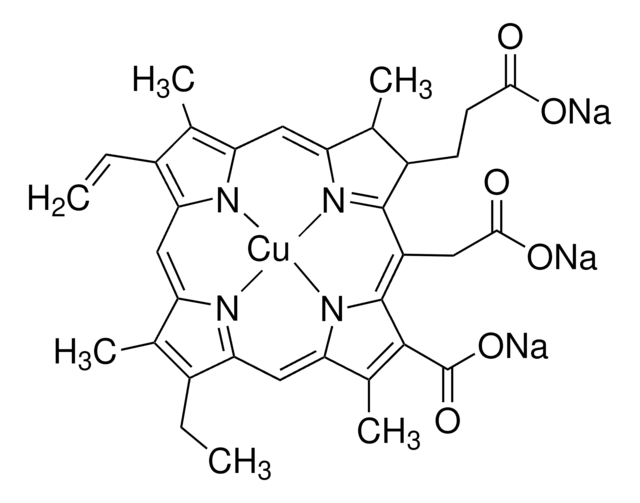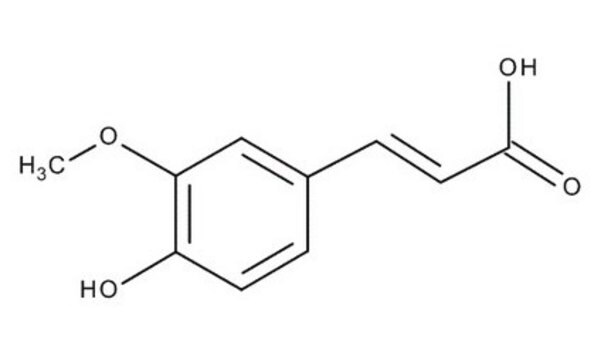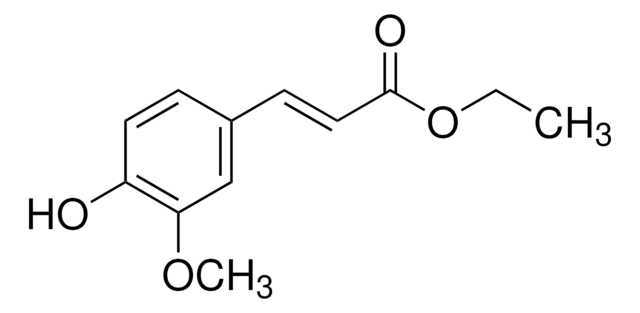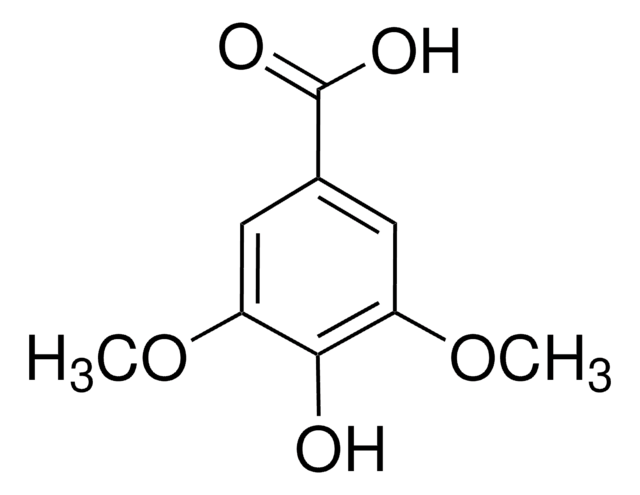PHR1791
Ferulic Acid
Pharmaceutical Secondary Standard; Certified Reference Material
Synonym(s):
trans-Ferulic acid, trans-4-Hydroxy-3-methoxycinnamic acid, Ferulic acid
About This Item
Recommended Products
grade
certified reference material
pharmaceutical secondary standard
Quality Level
Agency
traceable to Ph. Eur. Y0001013
traceable to USP 1270311
API family
ferulic acid
CofA
current certificate can be downloaded
packaging
pkg of 100 mg
technique(s)
HPLC: suitable
gas chromatography (GC): suitable
mp
168-172 °C (lit.)
application(s)
pharmaceutical (small molecule)
format
neat
storage temp.
2-8°C
SMILES string
OC(/C=C/C1=CC(OC)=C(O)C=C1)=O
InChI
1S/C10H10O4/c1-14-9-6-7(2-4-8(9)11)3-5-10(12)13/h2-6,11H,1H3,(H,12,13)/b5-3+
InChI key
KSEBMYQBYZTDHS-HWKANZROSA-N
Looking for similar products? Visit Product Comparison Guide
General description
Application
Biochem/physiol Actions
Analysis Note
Other Notes
Footnote
related product
Signal Word
Warning
Hazard Statements
Precautionary Statements
Hazard Classifications
Eye Irrit. 2 - Skin Irrit. 2 - STOT SE 3
Target Organs
Respiratory system
Storage Class Code
11 - Combustible Solids
WGK
WGK 3
Flash Point(F)
Not applicable
Flash Point(C)
Not applicable
Choose from one of the most recent versions:
Certificates of Analysis (COA)
Don't see the Right Version?
If you require a particular version, you can look up a specific certificate by the Lot or Batch number.
Already Own This Product?
Find documentation for the products that you have recently purchased in the Document Library.
Customers Also Viewed
Our team of scientists has experience in all areas of research including Life Science, Material Science, Chemical Synthesis, Chromatography, Analytical and many others.
Contact Technical Service









